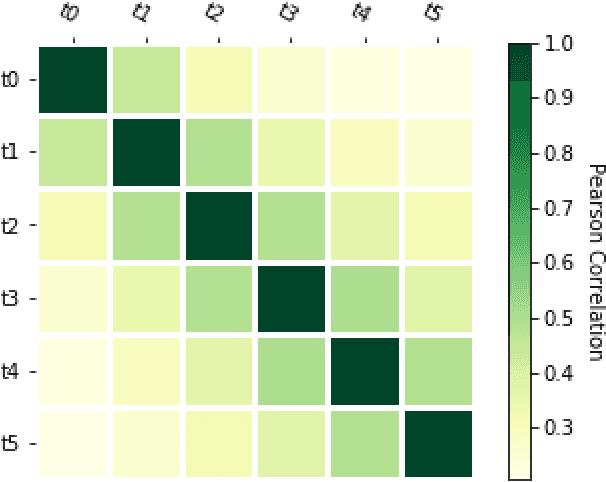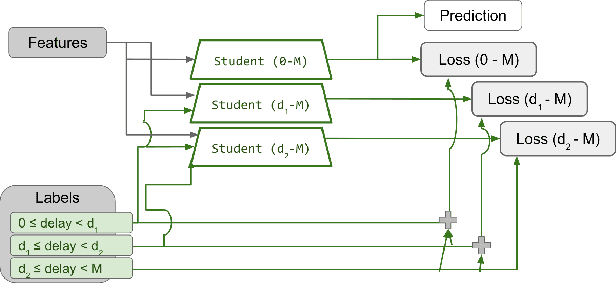Andrew Evdokimov
Handling many conversions per click in modeling delayed feedback
Jan 06, 2021



Abstract:Predicting the expected value or number of post-click conversions (purchases or other events) is a key task in performance-based digital advertising. In training a conversion optimizer model, one of the most crucial aspects is handling delayed feedback with respect to conversions, which can happen multiple times with varying delay. This task is difficult, as the delay distribution is different for each advertiser, is long-tailed, often does not follow any particular class of parametric distributions, and can change over time. We tackle these challenges using an unbiased estimation model based on three core ideas. The first idea is to split the label as a sum of labels with different delay buckets, each of which trains only on mature label, the second is to use thermometer encoding to increase accuracy and reduce inference cost, and the third is to use auxiliary information to increase the stability of the model and to handle drift in the distribution.
Probabilistic Reasoning via Deep Learning: Neural Association Models
Aug 03, 2016



Abstract:In this paper, we propose a new deep learning approach, called neural association model (NAM), for probabilistic reasoning in artificial intelligence. We propose to use neural networks to model association between any two events in a domain. Neural networks take one event as input and compute a conditional probability of the other event to model how likely these two events are to be associated. The actual meaning of the conditional probabilities varies between applications and depends on how the models are trained. In this work, as two case studies, we have investigated two NAM structures, namely deep neural networks (DNN) and relation-modulated neural nets (RMNN), on several probabilistic reasoning tasks in AI, including recognizing textual entailment, triple classification in multi-relational knowledge bases and commonsense reasoning. Experimental results on several popular datasets derived from WordNet, FreeBase and ConceptNet have all demonstrated that both DNNs and RMNNs perform equally well and they can significantly outperform the conventional methods available for these reasoning tasks. Moreover, compared with DNNs, RMNNs are superior in knowledge transfer, where a pre-trained model can be quickly extended to an unseen relation after observing only a few training samples. To further prove the effectiveness of the proposed models, in this work, we have applied NAMs to solving challenging Winograd Schema (WS) problems. Experiments conducted on a set of WS problems prove that the proposed models have the potential for commonsense reasoning.
 Add to Chrome
Add to Chrome Add to Firefox
Add to Firefox Add to Edge
Add to Edge